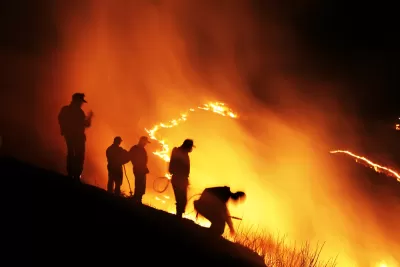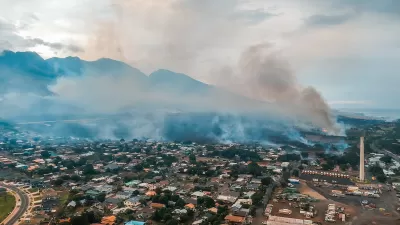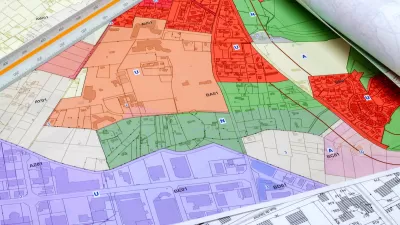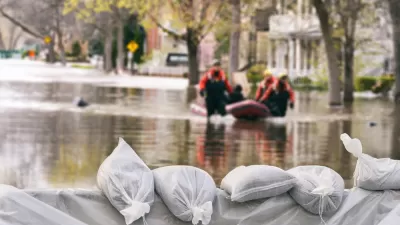Whether climate change 'caused' the California fires is a red herring, argues disaster resiliency expert Dave Hampton, in this first part in a series on lessons from the California fires about climate change.

Media reporting on the relationship between the recent devastating wild fires in California and climate change have demonstrated the confusion between attribution and contribution. While disasters like fires can never be directly attributed to climate change, Dave Hampton, a natural disaster resiliency specialist, argues there is little doubt climate change is:
. . . creating the preconditions for them to occur or to be more intense or prolonged – such as the higher winds and an overall drier season that have driven the Skirball and Thomas fires, threatening nearly 200,000 acres in California . . . [The] point is, rather, not to get too hung up on causation for particular events, but rather to acknowledge the changing climate as a driver and contributor to making natural events events such as wildfires, droughts, and flooding more severe.
Accordingly, planning for the 'wildland-urban interface' will require heightened and more proactive measures than in the past. For more, see source article.
FULL STORY: Lessons from the California Fires: Climate Change Impacts and Proactive Planning (part 1)

Planetizen Federal Action Tracker
A weekly monitor of how Trump’s orders and actions are impacting planners and planning in America.

Maui's Vacation Rental Debate Turns Ugly
Verbal attacks, misinformation campaigns and fistfights plague a high-stakes debate to convert thousands of vacation rentals into long-term housing.

San Francisco Suspends Traffic Calming Amidst Record Deaths
Citing “a challenging fiscal landscape,” the city will cease the program on the heels of 42 traffic deaths, including 24 pedestrians.

Defunct Pittsburgh Power Plant to Become Residential Tower
A decommissioned steam heat plant will be redeveloped into almost 100 affordable housing units.

Trump Prompts Restructuring of Transportation Research Board in “Unprecedented Overreach”
The TRB has eliminated more than half of its committees including those focused on climate, equity, and cities.

Amtrak Rolls Out New Orleans to Alabama “Mardi Gras” Train
The new service will operate morning and evening departures between Mobile and New Orleans.
Urban Design for Planners 1: Software Tools
This six-course series explores essential urban design concepts using open source software and equips planners with the tools they need to participate fully in the urban design process.
Planning for Universal Design
Learn the tools for implementing Universal Design in planning regulations.
Heyer Gruel & Associates PA
JM Goldson LLC
Custer County Colorado
City of Camden Redevelopment Agency
City of Astoria
Transportation Research & Education Center (TREC) at Portland State University
Jefferson Parish Government
Camden Redevelopment Agency
City of Claremont





























